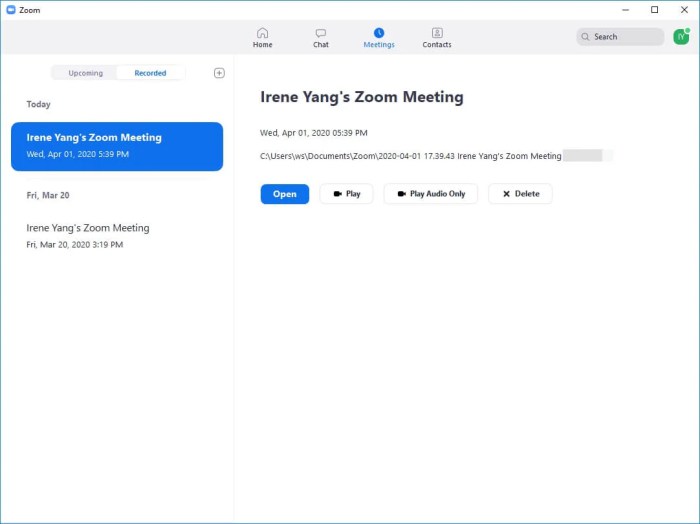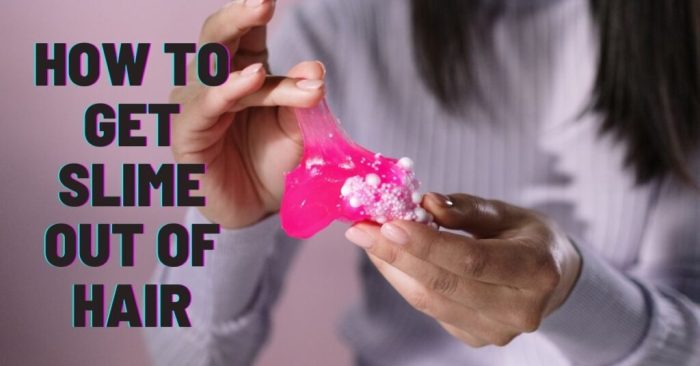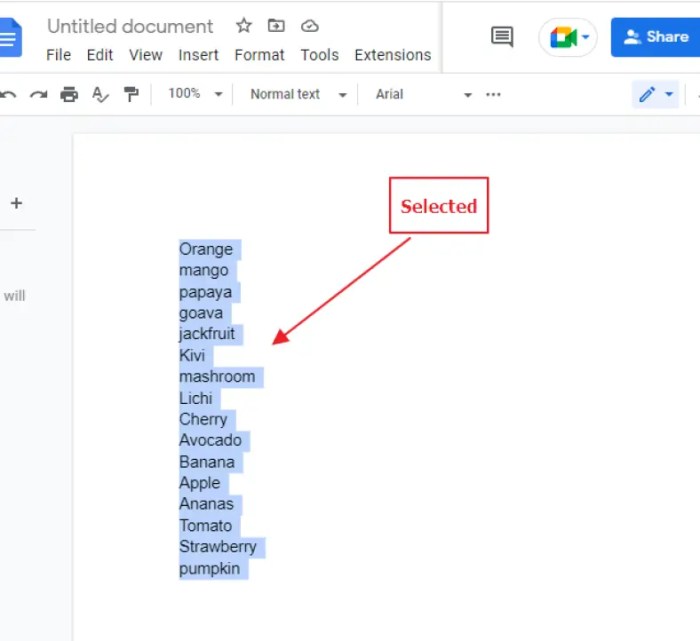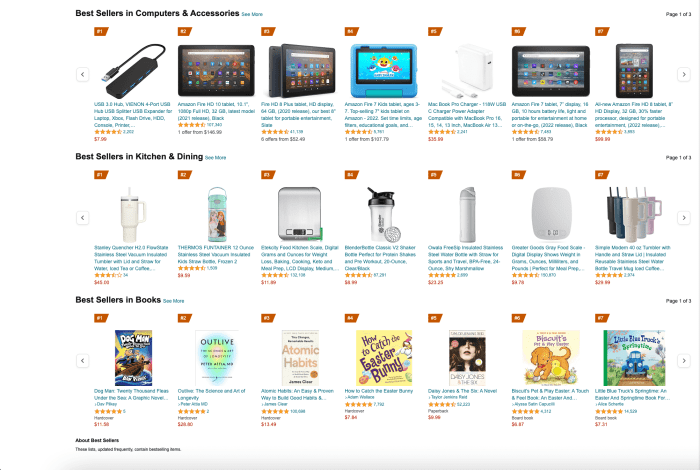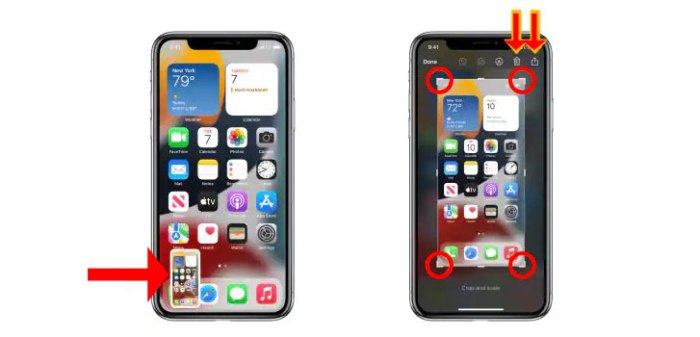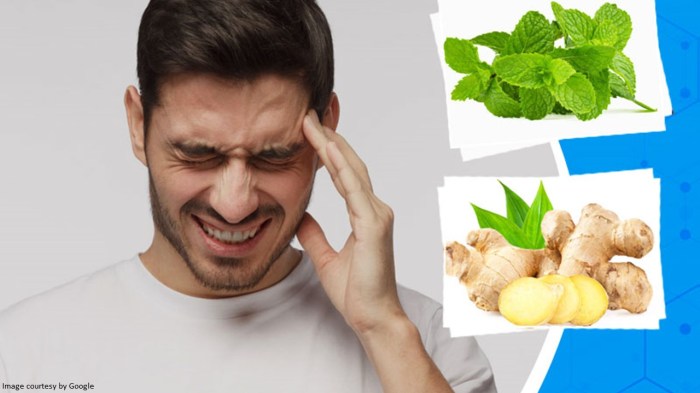
Headaches are a common ailment that can disrupt our daily lives. Whether it’s a mild annoyance or a severe, debilitating pain, finding immediate relief is paramount. This comprehensive guide explores a wide range of proven remedies, from simple lifestyle adjustments to medical interventions, empowering you to effectively combat headaches and restore your well-being.
Understanding your headache triggers is crucial for effective prevention. Common culprits include stress, dehydration, certain foods, and hormonal fluctuations. Identifying and avoiding these triggers can significantly reduce the frequency and severity of headaches.
Identifying Headache Triggers
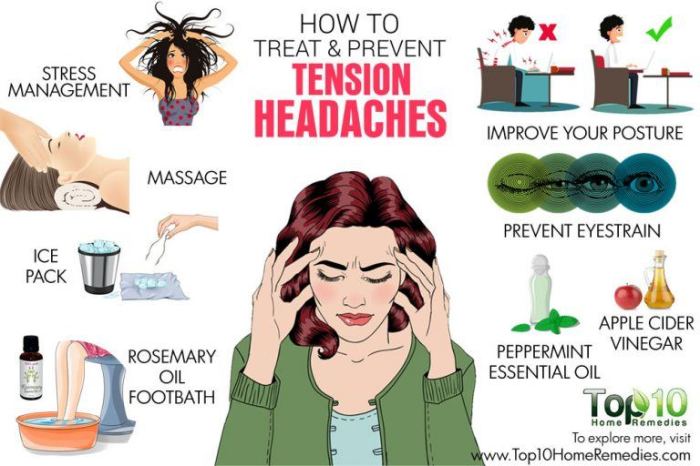
Pinpointing the factors that trigger your headaches is crucial for effective prevention. Identifying these triggers empowers you to avoid or manage them, reducing the frequency and severity of your headaches.
Environmental Triggers
- Bright lights (fluorescent or sunlight)
- Loud noises
- Strong odors (perfumes, cleaning products)
- Extreme temperatures (hot or cold)
- Barometric pressure changes
Lifestyle Triggers
- Stress
- Lack of sleep
- Poor posture
- Caffeine withdrawal
- Smoking
Dietary Triggers
- Certain foods (e.g., aged cheeses, red wine, chocolate)
- Artificial sweeteners
- Food additives (e.g., MSG, nitrates)
- Dehydration
Non-Pharmaceutical Remedies
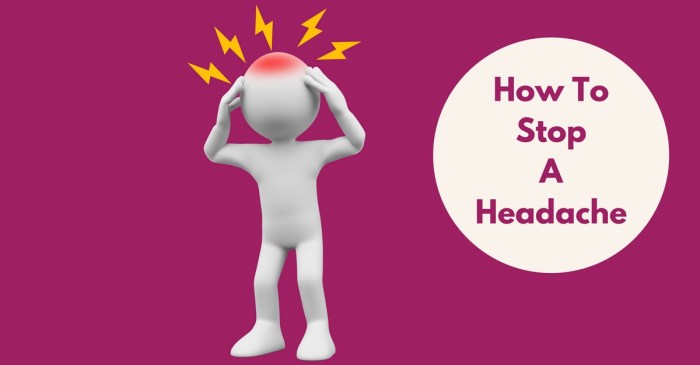
Non-pharmaceutical remedies offer alternative approaches to alleviate headaches without relying on medication. These techniques focus on addressing the underlying causes of headaches and promoting relaxation and pain relief.
Applying Cold or Heat Therapy
Applying cold or heat to the head or neck can provide temporary relief from headaches. Cold therapy constricts blood vessels, reducing inflammation and numbing pain. Heat therapy, on the other hand, relaxes muscles and promotes blood flow, which can also alleviate pain.
Performing Relaxation Techniques
Relaxation techniques such as deep breathing, meditation, or yoga can help reduce stress and tension, which are common triggers for headaches. These techniques promote relaxation and calmness, which can help alleviate headache pain.
Using Essential Oils
Certain essential oils, such as peppermint, lavender, or rosemary, have analgesic and anti-inflammatory properties. Applying these oils topically or diffusing them in the air can help reduce headache pain and promote relaxation.
Over-the-Counter Medications
Over-the-counter (OTC) medications are readily available at pharmacies and drugstores without a prescription. They can provide temporary relief from headache pain.
The most common types of OTC medications for headache relief include:
Acetaminophen
- Acetaminophen is a pain reliever and fever reducer.
- It is found in many OTC medications, such as Tylenol and Excedrin.
Ibuprofen
- Ibuprofen is a nonsteroidal anti-inflammatory drug (NSAID).
- It reduces pain and inflammation.
- It is found in many OTC medications, such as Advil and Motrin.
Naproxen
- Naproxen is a NSAID.
- It reduces pain and inflammation.
- It is found in many OTC medications, such as Aleve and Naprosyn.
4. Prescription Medications
Prescription medications are often necessary to treat severe or chronic headaches. These medications work by blocking pain signals or reducing inflammation in the brain.
Triptans
Triptans are a class of medications that are specifically designed to treat migraines. They work by constricting blood vessels in the brain, which reduces inflammation and pain. Triptans are most effective when taken at the onset of a migraine.
Ergotamines
Ergotamines are another class of medications that are used to treat migraines. They work by stimulating serotonin receptors in the brain, which causes blood vessels to constrict. Ergotamines are less effective than triptans, but they may be helpful for people who do not respond to triptans.
Opioids
Opioids are powerful pain relievers that can be used to treat severe headaches. However, opioids should only be used as a last resort, as they can be addictive and have serious side effects.
5. Medical Interventions
Persistent headaches that do not respond to other treatments may require medical interventions. These interventions aim to block or reduce pain signals, relax muscles, or address underlying structural issues.
Nerve Blocks
Nerve blocks involve injecting a local anesthetic or corticosteroid into the nerves that transmit pain signals from the head. This temporarily blocks the signals, providing pain relief. Nerve blocks can be performed on specific nerves or nerve groups.
Botox Injections
Botox injections are used to treat chronic migraines. Botox is a neurotoxin that temporarily paralyzes muscles. When injected into the muscles around the head and neck, it can reduce muscle tension and prevent the activation of pain pathways.
Surgery
Surgery may be considered for rare cases of severe, intractable headaches. Surgical interventions aim to address underlying structural abnormalities, such as a Chiari malformation or a tumor. Surgery can involve decompression of the nerves or removal of the offending structure.
6. Lifestyle Modifications
Lifestyle modifications play a crucial role in preventing and managing headaches. By making simple changes to our daily routines, we can significantly reduce the frequency and severity of headaches.
Maintaining a Healthy Sleep Schedule
Establishing a regular sleep schedule is essential for overall health and headache management. Aim for 7-9 hours of quality sleep each night. Avoid caffeine and alcohol before bed, create a relaxing bedtime routine, and ensure your bedroom is dark, quiet, and cool.
Managing Stress
Stress is a common headache trigger. Find healthy ways to manage stress, such as exercise, yoga, meditation, or spending time in nature. Learning relaxation techniques can also be helpful in reducing headache frequency.
Regular Exercise
Regular exercise can help reduce tension headaches and improve overall well-being. Aim for at least 30 minutes of moderate-intensity exercise most days of the week.
7. Dietary Changes

Adjusting your diet can significantly reduce headache frequency and severity. Certain foods and beverages can trigger headaches, while others may alleviate them.
Avoiding Certain Foods and Beverages
- Caffeine: While caffeine can initially provide relief, excessive consumption can lead to rebound headaches.
- Alcohol: Alcohol can dehydrate the body and cause headaches, especially red wine.
- Artificial sweeteners: Aspartame and other artificial sweeteners have been linked to headaches in some individuals.
- Aged cheeses: Tyramine, a substance found in aged cheeses, can trigger headaches in sensitive individuals.
- MSG (monosodium glutamate): This food additive has been associated with headaches in some people.
Incorporating Specific Nutrients into the Diet
- Magnesium: Magnesium deficiency can contribute to headaches. Good sources include leafy green vegetables, nuts, and seeds.
- Riboflavin (vitamin B2): Riboflavin deficiency has been linked to migraines. Good sources include dairy products, eggs, and leafy green vegetables.
- Coenzyme Q10: This antioxidant has shown promise in reducing migraine frequency and severity.
- Ginger: Ginger has anti-inflammatory properties that may help alleviate headaches.
8. Herbal Remedies
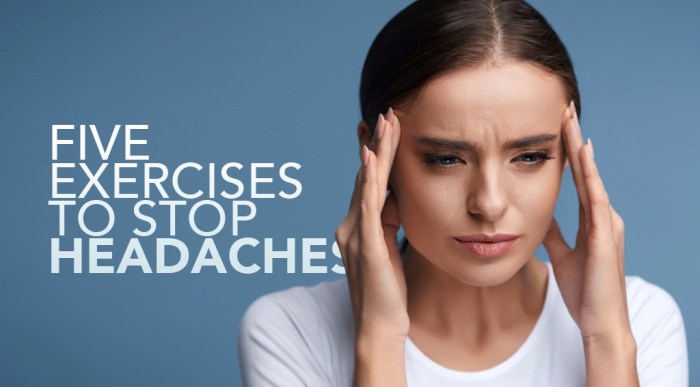
Herbal remedies have been used for centuries to relieve headaches. Some of the most common and effective herbal remedies for headaches include:
Feverfew
Feverfew is a herb that has been shown to be effective in preventing and treating migraines. It is thought to work by reducing inflammation and blocking the release of pain-causing chemicals in the brain.
Willow bark
Willow bark contains salicin, which is a natural form of aspirin. Aspirin is a common over-the-counter pain reliever that can be effective in treating headaches.
Ginger
Ginger is a natural anti-inflammatory that can help to reduce headache pain. It is also thought to help improve circulation and reduce nausea, which can be associated with headaches.
9. Complementary Therapies

In addition to traditional medical approaches, several complementary therapies have shown promise in managing headaches. These therapies aim to address the underlying causes of headaches and promote overall well-being.
Acupuncture
Acupuncture involves inserting thin needles into specific points on the body. It is believed to stimulate the release of endorphins, which have pain-relieving effects. Acupuncture has been shown to be effective in reducing the frequency and severity of headaches, particularly tension headaches and migraines.
Massage Therapy
Massage therapy involves manipulating soft tissues to relieve tension and promote relaxation. It can help improve blood flow, reduce muscle spasms, and alleviate stress, all of which can contribute to headaches. Massage therapy is particularly beneficial for tension headaches and cervicogenic headaches (headaches caused by neck pain).
Chiropractic Care
Chiropractic care focuses on the relationship between the spine and nervous system. Chiropractors use spinal adjustments to correct misalignments and improve nerve function. This can help reduce pain and inflammation, which can contribute to headaches. Chiropractic care has been shown to be effective in treating tension headaches, migraines, and cervicogenic headaches.
10. Emergency Situations
If you experience any of the following symptoms, seek emergency medical attention immediately:* Sudden onset of severe headache
- Headaches accompanied by neurological symptoms (such as vision changes, weakness, or numbness)
- Headaches that worsen despite treatment
These symptoms may indicate a serious underlying medical condition, such as a brain tumor, stroke, or meningitis.
Outcome Summary

Managing headaches requires a multifaceted approach that encompasses lifestyle modifications, dietary changes, and, when necessary, medical interventions. By understanding your triggers, employing non-pharmaceutical remedies, and exploring complementary therapies, you can effectively alleviate headache pain and improve your overall quality of life.
Remember, if your headaches persist or worsen despite home remedies, seeking professional medical advice is essential to rule out any underlying medical conditions.

